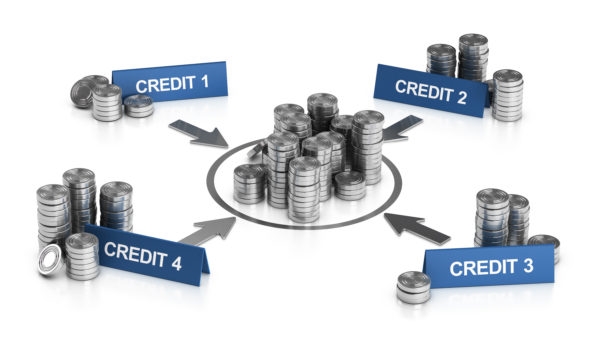
Fix Your Credit – CloverMortgage.ca
If you have made credit mistakes or have encountered financial hardships in the past and your credit score suffered as a result, you will likely have a difficult time to qualify for credit products and loans such as a mortgage, car lease, credit cards, and more. This can continue to negatively impact an already challenging financial situation.
Fortunately, there are steps that you can take to help rebuild your credit score and open yourself up for being able to qualify for credit and loans that can improve your overall financial situation.
Here are 8 things you can do to help increase your credit score:
- Monitor Your Credit Report and Score
Studies have shown that as many as 1 in 5 people have errors reported on their credit bureaus that have negatively impacted their credit scores and resulted in those individuals not being able to qualify for credit products such as credit cards, mortgages, home refinancing, and more.
When it comes to financing your home by getting a mortgage or home refinance, working with an experienced mortgage broker can be your best bet to getting approved for the lowest rate on a mortgage loan. Since mortgage brokers have access to non-conventional lending institutions such as trust companies and credit unions, along with access to private mortgage lenders if needed, you are more likely to get approved for the mortgage even if you have bad credit provided that you have enough equity available in your home. The main shortcoming with that come along with getting a mortgage or refinance through a sub-prime mortgage lender is that you are going to be paying a higher interest rate and may have stricter terms associated with your loan.
This is why it is imperative that you regularly check both your TransUnion and Equifax credit bureau reports. By doing this regularly, you are more likely to find errors such as reported missed payments that were actually made on time, wrong personal information, debts that have been fully paid yet still appear as outstanding, and other inaccuracies that should not appear on your record.
By checking your credit report yourself, you are not registering a “hard inquiry”, but instead a “soft inquiry” that bares no weight in the calculation of your credit score. If you do manage to uncover errors, you should report them immediately and allow for up to 30 days for the credit bureau to investigate and remedy the situation should they determine that the errors were in fact errors. By correcting errors on your credit report, you can expect to see an almost immediate improvement in your credit score.
- Pay Your Bills On Time
Your payment history has the largest impact on your credit score. It contributes for approximately 35% of your credit score. By regularly paying your bills on time, you can help improve you credit score significantly. Miss only 1 or 2 payments and your credit score can suffer tremendously. Here is some more information to help you better understand how your payment history and other factors impact your credit score.
Even if you miss a small payment of $ 50, this can negatively affect your credit score, and missed or late payments stay on your credit record for up to 6 years.
- Keep A Low Balance
How you utilize your credit and the ratio between the balances that you carry in comparison to your actual credit limits will play a big role in the calculation of your credit score. This ratio is called the utilization ratio. As a general rule of maintaining “good credit health” or to help improve your credit score, it is important to keep your ratio below 30%. This means that you should always try to have your total balances equal to less than 30% of your total credit limits.
As an example, let’s pretend that you have 2 credit cards. One of your credit cards has a $ 3,000 limit and the other has a $ 7,000 limit. In total you have $ 10,000 of available credit on your credit cards. Now let’s imagine that you have a balance of $ 1,000 on one card and a balance of $ 2,000 on the other card. In total you have $ 3,000 owing on your credit cards.
Now divide the $ 3,000 total balance by the $ 10,000 total credit limit and multiply that number by 100. This will give you a utilization ratio of 30% using this example. If you are within the 30% ratio, your credit score will likely start to improve rather quickly. If you surpass this ratio, then your credit score will likely start to decrease.
Here are a couple of things that you can do to help lower your current utilization ratio in the event that your ratio is a bit high:
- If you are disciplined enough to maintain your balance as is and not increase your expenditures, then you can apply to raise the credit limits on your credit cards, line of credit, and other loans.
- The second option, if you are able to access extra cash or save up some extra cash is to pay down your current balances so they fall below the 30% utilization ratio. One way to do this is through a debt consolidation loan, which is easiest to obtain in the form of a mortgage refinance or home equity loan if you are a property owner. Here is some information about how you can get a debt consolidation loan in the form of a home equity loan or second mortgage using the available equity that you have in your home or property.
- Keep Old Credit Accounts Open
The amount of time that you have been building your credit history for also plays a large part in the calculation of your credit score. This is why it is not usually suggested to close credit accounts as long as you are able to use them wisely and maintain low balances that you are able to pay regularly. Even if you don’t use a credit card much at all, it is generally advisable to keep the card open and active, even if you only use it for a small amount every few months. This will help keep your utilization ratios lower and also add to the length of time that your credit history is developing.
- Diversify Your Credit
Diversification is not only something that investment advisors suggest to their clients, but something that credit advisors suggest to consumers. By having a variety of credit products, and by demonstrating that you can manage the different credit products responsibly, this will positively affect your overall score.
- Strategically Plan Your Credit Applications
Did you know that every time a creditor checks your credit report for the purpose of reviewing an application for credit it is considered a “hard inquiry” on your credit bureau? If you apply for credit several times in a short time period, this will negatively impact your credit score. In the case of applying for a mortgage and shopping around several banks to get the best rate, this can have an extremely negative impact on your score.
When shopping for the most competitive mortgage rates, you are often times better off using the services of a mortgage broker who will be able to perform only one single credit check and use that same report among the various lenders and banks they work with to shop for the best mortgage rate for you. This will save you time and save your credit score also.
- Consolidate Your Debt
Ensuring that your utilization ratios are low and that you make your monthly payments on time will help you improve and maintain a higher credit score. A debt consolidation loan can help you achieve these two things if you are feeling overwhelmed with monthly debt payments. By paying down and consolidating your higher interest debt into one single smaller monthly payment carrying a lower interest rate, you will be improving your overall debt and credit utilization ratio while making it easier for yourself to keep up to date with your monthly debt payments and bills.

Debt Consolidation Loan – CloverMortgage.ca
Consolidating debt can come in a variety of forms. Here are a few examples of common types of debt consolidation loans:
- Promotional low rate credit cards that offer lower interest rates when you transfer balances from other credit cards
- Credit lines, also know as lines of credit, typically come with much lower interest rates than you are likely paying with most of the common credit cards
- A second mortgage, a mortgage refinance, or a home equity loan can all be great options to consolidate debt
- Get A Secured Credit Card
If your credit score is too low to enable you to qualify for credit, then consider opting for a secured credit card. Many banks offer this option as a way to help people develop or rebuild their credit ratings. For most secured credit cards, you will be required to put down a deposit equivalent to the credit limit of the card, however you will still be required to make your monthly payments on time towards the balance of the card, and it is still recommended that you maintain a balance of less than 30% of the total credit limit of the card.
No matter how poor your credit score and history might be, these eight steps along with a realistic and manageable plan to manage your credit and finances will help you improve your score and rebuild your positive credit history so that you can qualify for valuable loans and credit products such as mortgages, car loans, and more in the future. Even if you can not carry out all of the eight steps, that’s alright. Even starting with 1, 2, or 3 of these steps can help you get started on the road to credit recovery.
Business & Finance Articles on Business 2 Community
(27)









